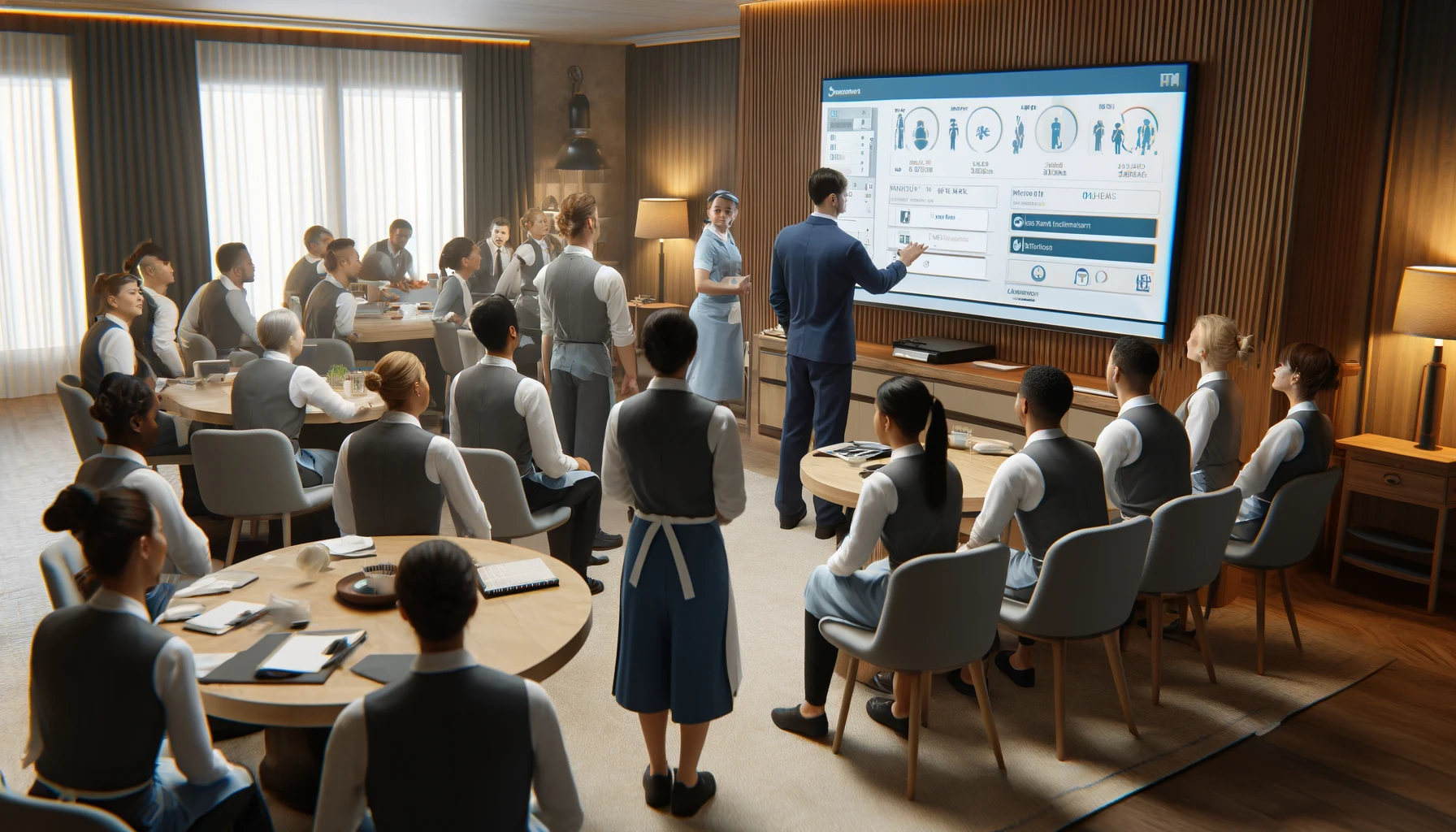The hospitality industry is embracing new digital technologies in an effort to improve efficiency and guest satisfaction. However, the transition to these technologies can be challenging for staff in critical roles such as housekeeping. This challenge highlights the need for better training methods and support for employees, raising questions about the effectiveness of technology integration in enhancing operational efficiency.
To overcome these challenges, hospitality leaders can adopt strategies that promote technology adoption among their staff. One such strategy is to provide tailored training programs that cater to different learning styles to ensure maximum technology utilization and effectiveness. By offering customized training programs, hotels can help employees feel more comfortable and proficient with new technologies, ultimately enhancing productivity and guest experiences.
Stephanie Leger, the Chief Excellence Officer at First Rate Hospitality, emphasizes the importance of effective training in technology adoption in the hospitality industry. She stresses that hotels must provide customized training programs that cater to different learning preferences among staff, such as hands-on learners or those who prefer reading or watching videos. By providing the right training and support, hotels can ensure that their investments in technology are used to their full potential.
Leger identifies several issues that can hinder technology adoption among staff, including avoidance of new tools, insufficient training periods, diverse learning needs, and operational challenges. To address these issues effectively, hotels must implement tailored training programs and robust support systems that cater specifically to each employee’s unique needs and preferences.
In conclusion, investing in effective training and support for employees is crucial for maximizing the benefits of technology integration in the hospitality industry. By providing customized training programs and robust support systems that accommodate diverse learning styles among staff, hotels can enhance guest experiences while staying competitive in a rapidly evolving industry.
In summary,
The hospitality industry is using digital technologies to improve efficiency and guest satisfaction but this transition can be challenging especially for critical roles like housekeeping staff who may struggle with new systems not being intuitive. To overcome this challenge hotels must adopt better strategies like providing tailored training programs accommodating diverse learning styles to ensure maximum utilization of these technologies.
Effective training is necessary for successful implementation of technology integration in hospitals as it addresses issues hindering adoption such as avoidance of new tools due lack of knowledge or understanding about them while also ensuring sufficient time for adequate adaptation period.
Hotels need customized support systems catering specifically to each employee’s unique needs thereby promoting effective use of their investments made on new technologies resulting into enhanced productivity and improved guest experiences ultimately keeping them competitive within an evolving industry.
